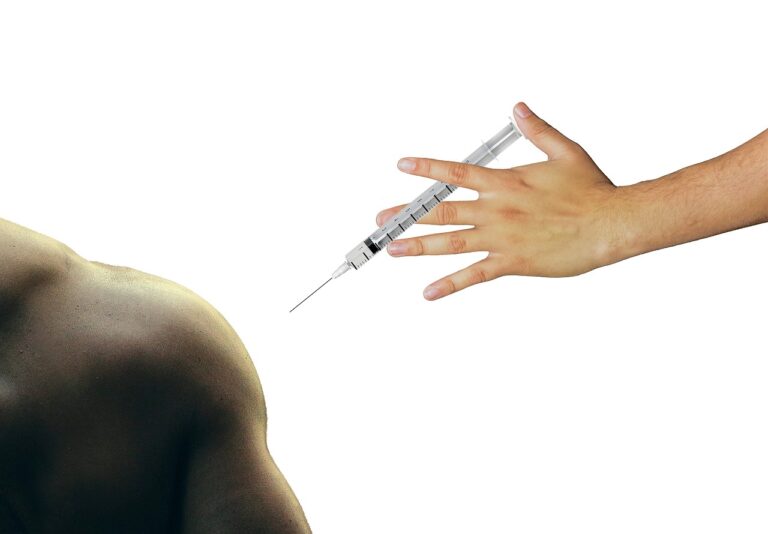Substance Abuse Prevention Programs for Teens and Families
goldbet.com registration, tiger exchange login, betbook247: Substance abuse is a serious issue that affects countless individuals and families across the country. It can have devastating consequences on physical health, mental wellbeing, relationships, and overall quality of life. Prevention is key when it comes to addressing substance abuse, especially among teenagers who are particularly vulnerable to peer pressure and societal influences. Fortunately, there are several evidence-based programs tailored specifically for teens and families to help prevent substance abuse before it starts.
1. The Importance of Prevention Programs
Prevention programs play a crucial role in educating teens and families about the risks associated with substance abuse and providing them with the tools they need to make informed decisions. By addressing risk factors such as peer pressure, trauma, mental health issues, and lack of parental involvement, prevention programs can help reduce the likelihood of teens engaging in substance abuse.
2. Teen-focused Prevention Programs
There are several prevention programs designed specifically for teenagers that have been shown to be effective in reducing substance abuse. These programs typically focus on building resilience, improving coping skills, increasing self-esteem, and fostering positive peer relationships. Some examples of teen-focused prevention programs include:
– D.A.R.E. (Drug Abuse Resistance Education)
– SADD (Students Against Destructive Decisions)
– Too Good for Drugs
– Strengthening Families Program
3. Family-based Prevention Programs
In addition to teen-focused programs, there are also several prevention programs that involve the whole family in the prevention efforts. These programs aim to strengthen family bonds, improve communication, and provide parents with the skills they need to monitor and support their teens. Some examples of family-based prevention programs include:
– Family Checkup
– Family Matters
– Parenting Wisely
– Guiding Good Choices
4. How to Get Involved
If you’re interested in participating in a substance abuse prevention program for teens and families, there are several ways to get involved. Many schools, community centers, and healthcare providers offer prevention programs either in-person or online. You can also reach out to local organizations and non-profits that specialize in substance abuse prevention for more information on available resources in your area.
5. Tips for Parents
As a parent, there are several things you can do to help prevent substance abuse in your teen. Establishing open communication, setting clear expectations and boundaries, monitoring your teen’s activities, and being a positive role model are all important steps in preventing substance abuse. Additionally, educating yourself about the risks and warning signs of substance abuse can help you recognize any potential issues early on.
6. The Role of Peer Influence
Peer pressure is one of the leading risk factors for substance abuse among teens. By helping your teen build strong, positive relationships with peers who share similar values and interests, you can help reduce the likelihood of them succumbing to peer pressure. Encouraging your teen to get involved in extracurricular activities, sports, or clubs can also help them form connections with like-minded peers.
FAQs
Q: What should I do if I suspect my teen is using drugs or alcohol?
A: If you suspect that your teen is using drugs or alcohol, it’s important to address the issue head-on. Approach your teen with compassion and understanding, and encourage them to seek help from a healthcare provider or substance abuse counselor.
Q: Are there any warning signs I should look out for?
A: Some common warning signs of substance abuse in teens include changes in behavior, mood swings, declining academic performance, withdrawal from family and friends, and physical symptoms such as bloodshot eyes or weight loss.
Q: How can I talk to my teen about substance abuse?
A: When talking to your teen about substance abuse, it’s important to approach the conversation with empathy and an open mind. Avoid accusing or blaming language, and instead focus on listening to your teen’s perspective and providing them with information and resources to make informed decisions.
In conclusion, substance abuse prevention programs for teens and families play a crucial role in reducing the prevalence of drug and alcohol abuse among young people. By educating teens and families about the risks associated with substance abuse, providing them with the tools they need to make healthy choices, and fostering positive relationships, prevention programs can help create a safer and healthier community for all. If you or someone you know is struggling with substance abuse, don’t hesitate to reach out for help. Remember, prevention is key.







